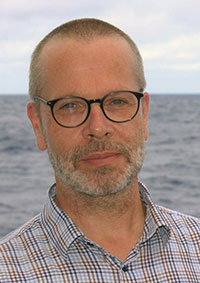05-MCM-MS Materials Science
Representative Wolfgang Bach
The aim of this course is to provide an introduction into the stability, and the chemical and physical properties of solids. A main focus is on crystalline solids (minerals and metals) but amorphous materials (glasses), soft matter (polymers, gels), cement, ceramics, and nanocomposites are also discussed. Important topics covered by the modul: - Electronic structure and chemical bonding / - theoretical foundations of Quantum Chemistry, Molecular Dynamics and Statistical Physics / - Modelling and computer simulations of materials structure atomic structure and properties by using Quantum Mechanical, Molecular Dynamics and Monte Carlo methods. The second part of the modul focuses on interpretation of phase diagrams of binary and ternary systems. Basic definitions are presented and the equilibrium conditions for congruently and incongruently melting compounds are explained for systems with complete and limited solid solutions. Practical training with thermal analyses methods. Samples will be prepared with various compositions in a binary reference system. Thermal signals will be recorded and interpretated to generate a simple phase diagram.
Students will be able to understand cyrstallization and melting processes of crystalline matter and their equilibrium conditions.
None
Course Type 1: Lecture (L) 4.0 SWS ( 56.0 h)
Tutorial(s): -
Workload:56.0 h presence time
84.0 h self-study
40.0 h exam workload
180 h total workload
module exam
exam elements: 1
SL: 0
100 % written exam
To be selected and announced by N.N. - Please, contact your lecturer.
Basic Data
Master Materials Chemistry and Mineralogy
Module Type
Mandatory
First Year of Study
Offering Departement
Wintersemester
Course LanguageEnglish
6 CP
4 SWS
Contact

Contact
Prof. Dr. Wolfgang Bach
GEO 5340
 uni-bremen.de
uni-bremen.deContact

Contact
Prof. Dr. Wolfgang Bach
GEO 5340
 uni-bremen.de
uni-bremen.de
